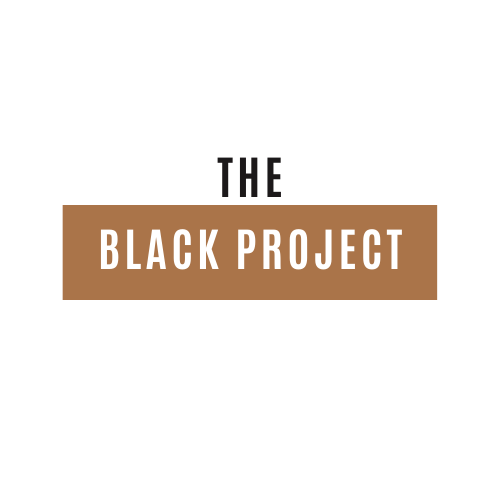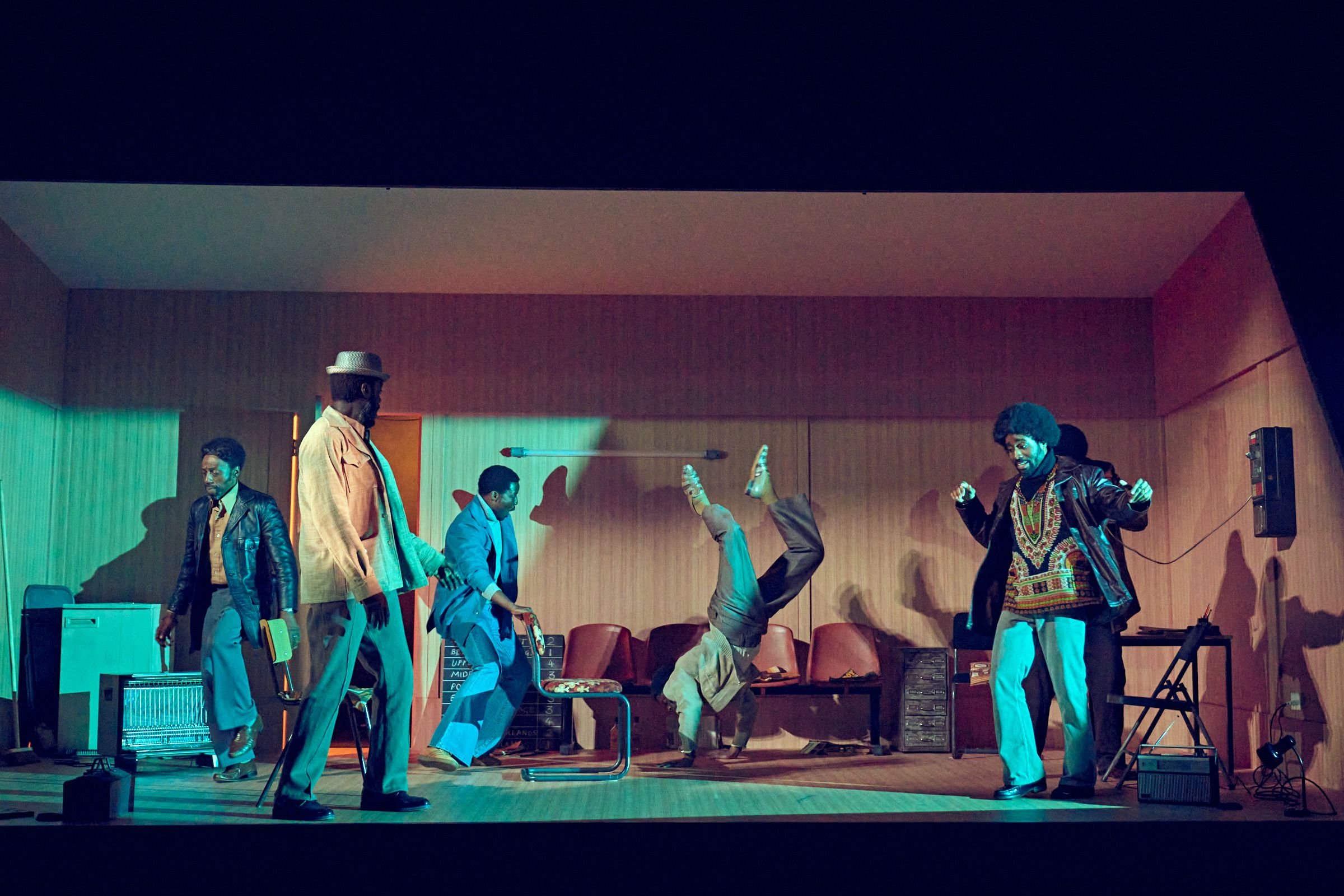Theatre Review: Jitney, The Old Vic
★★★★½
Jitney. The name given to an illegal cab service, usually run out of a storefront. Tinuke Craig’s rendition of August Wilson’s 1982 play is a powerful exploration of gentrification and wealth inequality, masculinity in all its forms, and working class life. Though it’s set in 1977, it feels almost timeless. We are still seeing these stories play out – working class working hard to never get the same out of life that they put in. Struggling to get by doing whatever they can whilst the wealthy elite drive up costs, drive out businesses and upper class white families take the place of working class Black ones now that the projects are suddenly the suburbs. The projections around the stage are a clever way to show the world around them changing, whilst their lives happen in amongst it.
The great thing about this play is it feels real. Like if you walked into an all black cab office in 1977 Pittsburgh, this is what you’d find. 5 guys of varying ages, varying backgrounds, shooting the shit whilst they navigate the dynamic of spending more time together than with anyone else but not quite being friends. Bickering, getting advice, finding support. It’s almost a dysfunctional family.
In an almost all-male cast like this, you can’t help but see a commentary on masculinity, and what it means to be a man. In Becker (Wil Johnson) and his son Booster (played at my show by understudy Blair Gyabaah) you have direct parallels. Becker is a man of the mind and of graft. Being a man for him meant being a good father and a good husband. Providing. Keeping a roof over his families head even if it meant swallowing his pride at times. Wil played this introspective nature beautifully, every time he was on stage I just wanted to know what was going on in his head. Booster however had a different view of what it meant to be a man. Swallowing his pride wasn’t an option, he thought it made him small. He was a man of quick reactions, no matter the cost. And we find out that costs him everything after he murders his white girlfriend who falsely accuses him of rape. Blair did a stand up job, and he shone especially in one of the final scenes of the play.
The stand out performance for me though came from Sule Rimi as the gossiping, quick to anger, mighty proud Turnbo. He’s a man I think we all know. A man who appears jovial and light and loose, silly even. But that surface hides an entirely too short fuse on a bomb reaction. A man who needles those around him, searching for a reaction but plays it off as a joke or “just giving his opinion” when he gets one. A man who pushes someone to their limit, but when his pride takes a quite literal hit, he can’t swallow it like Becker, he is like a mirror of 19 year old Booster.
Youngblood (Solomon Israel) comes across like the son Becker hoped he had raised. A hard worker, he came home from war and put his family first, doing whatever he could to put a roof over his families head. He’s a decision maker, a provider, a man who recognised his faults and works hard to change them. But in one of his best scenes – a confrontation with his girlfriend Rena (Leanne Henlon) - we see that the most important thing in any relationship is communication.
Doub (Geoff Aymer), Shealy (Nnabiko Ejimofor), Philmore (Dayo Koleosho), and Fielding (Tony Marshall) add more layers and balance. Doub is the gentlest of the men, traumatised by what he saw and had to do at war, he doesn’t want confrontation. He wants peace. He wants to read his damn book. And if he has to give $4 to Fielding and his drinking problem to get that peace then he’s going to do it. Fielding it seems also wants peace, but he finds it in a bottle and not a book. Shealy and Philmore show how places like the Jitney office are more than just buildings, they’re community hubs. Philmore is a regular customer, they all know where he lives, he comes in for a chat, he’s never taken a day off work, and the offer to do so at the end shows just how much of a community the cab office is. And Shealy, much like all these men, he’s doing what he has to do to to get by. He’s running numbers – a form of illegal gambling – out of office. The others complain about him using their phone but no one stops him, and most by in.
And in these character dichotomies, in their confrontations, is where the beauty of August Wilson’s writing shines. Because he casts no judgements. He doesn’t say which of these men is being a man in the right way. He doesn’t condemn them for the illegal nature of all their work. It is heartfelt and it is honest. He just writes them as they are. And with that comes an ending that made my heart drop to my stomach. But that’s life isn’t it? It comes at you fast and it certainly doesn’t do what you expect it to.
It’s a truly fascinating play that stands the rest of time, and Tinuke Craig and her cast have put together a beautiful rendition that left a mark.
Jitney runs at The Old Vic until July 9th, before moving on to Oldham, Worthing, Bath, and Cambridge.


